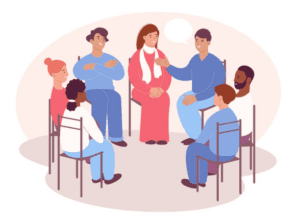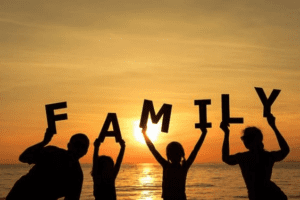Families of individuals struggling with addiction face many challenges, such as emotional distress, financial strain, and social stigma. Watching a loved one battle addiction can be heartbreaking and overwhelming, leaving family members feeling alone and unsure of how to cope.
Support groups for families of addicts are crucial. They provide help, guidance, and a sense of community to those affected by their loved one’s addiction. These groups offer a safe space for family members to share their experiences, gain insights, and receive empathy and encouragement from others who understand their struggles.
In this blog, we will explore the importance of support groups for families of addicts and look at the different types available. Readers will learn about the benefits of joining these support groups, how to find and join them, and how they support families through the challenges of addiction. Join us as we navigate the journey of finding support and strength together in the face of addiction.
Understanding Support Groups for Families of Addicts

Support groups are crucial for offering assistance and guidance to people facing similar challenges. They provide a platform for members to share their experiences, emotions, and coping strategies in a supportive and understanding environment.
Support groups specifically for families of addicts address the unique needs and concerns of those affected by a loved one’s addiction. Unlike general support groups, these specialized groups focus on the specific challenges families face, such as coping with stress, setting boundaries, and fostering healthy communication within the family.
- Definition and Role: Support groups offer crucial assistance and guidance by providing a platform for individuals to share experiences and coping strategies in a supportive environment.
- Specific Focus: Support groups for families of addicts address the unique challenges faced by those affected, including stress management and healthy communication within the family.
- Types and Objectives: Various support groups exist, ranging from traditional peer-support models like Al-Anon and Nar-Anon to educational programs like SMART Recovery Family & Friends and NAMI Family Support Group, all aimed at offering solace and practical assistance to families impacted by addiction.
Support Groups for Families of Addicts
Al-Anon
Al-Anon is a support group for friends and family members of individuals struggling with alcohol addiction. It provides a safe space for participants to share their experiences, strengths, and hope with others who understand their situation.
Alateen
Alateen is a support group specifically designed for teenagers who have family members or friends with alcoholism. It offers a supportive environment where young people can express their feelings and learn coping strategies.
Nar-Anon
Nar-Anon is a fellowship for family members and friends of individuals affected by drug addiction. It provides support and encouragement to help participants cope with the challenges of loving someone with a substance use disorder.
Parents of Addicted Loved Ones (PAL)
PAL offers education, support, and resources to parents dealing with a child’s substance abuse. It helps parents navigate the complexities of addiction and provides strategies for supporting their loved ones in recovery.
Families Anonymous
Families Anonymous is a 12-step program for families and friends affected by a loved one’s addictive behavior. It promotes mutual support and understanding among participants and offers tools for personal growth and recovery.
SMART Recovery Family & Friends
SMART Recovery offers support groups based on scientific principles for individuals affected by addiction, including family members and friends. It focuses on empowering participants to develop effective coping skills and healthy behaviors.
GRASP (Grief Recovery After a Substance Passing)
GRASP provides support to individuals who have lost a loved one to substance abuse. It offers compassion, understanding, and resources to help participants navigate the grieving process.
NAMI Family Support Group
NAMI offers support groups for families of individuals living with mental health conditions, including co-occurring substance use disorders. It provides education, advocacy, and support to help families navigate the challenges of mental illness and addiction.
Learn to Cope
Learn to Cope provides peer support and education to families dealing with addiction to opioids and other drugs. It offers resources, information, and guidance to help families cope with the impact of addiction on their lives.
Recovering Couples Anonymous (RCA)
RCA offers support groups for couples who are both in recovery from addiction. It provides a supportive environment where couples can share their experiences, strengthen their relationship, and support each other’s sobriety.
The Benefits of Support Groups for Families Affected by Addiction and Mental Illness

Support groups for families affected by addiction offer numerous benefits, including
- Emotional support and understanding from individuals who share similar experiences.
- Education and information about addiction, recovery, and coping strategies.
- Practical advice and guidance on navigating challenging situations.
- Opportunities for personal growth and empowerment.
- Reduction of feelings of isolation and stigma.
- Building social connections and supportive relationships.
How to Find Family Support Groups

Finding a support group for families affected by addiction is easier than ever, thanks to various resources available online and in local communities. Here are some steps to help you find a suitable support group:
- Search online for local support groups using platforms like Psychology Today, Meetup, or the websites of specific organizations like Al-Anon or NAMI.
- Ask for recommendations from healthcare professionals, therapists, or addiction treatment centers.
- Contact local community centers, religious organizations, or hospitals to inquire about support group meetings in your area.
- Attend virtual support group meetings if in-person meetings are not available or convenient.
FAQs
What is the charity for children of addicts?
As the National Association for Children of Addiction (NACoA), we aim to eradicate the negative consequences of alcohol and drug use on children and families. We envision a future where every child affected by family addiction receives the support they need to thrive.
What is the role of parents in preventing drug abuse?
Extensive evidence indicates that parental guidance and engagement significantly decrease the likelihood of developing substance abuse habits, especially when initiated during childhood. Hence, parents need to initiate frequent and early conversations with their children regarding the drugs they may come across.
How does drug use affect children?
These children commonly undergo a range of emotions, including anxiety, fear, depression, guilt, shame, loneliness, confusion, and anger. They may feel responsible for their parent’s Substance Use Disorder (SUD) or feel pressured to conceal the drug use from other family members or the community.
Conclusion
Support groups for families of addicts serve as invaluable resources for individuals navigating the complexities of addiction within their families. By providing a safe space for sharing experiences, gaining knowledge, and receiving support, these groups offer a lifeline for those grappling with the challenges of addiction. Whether it’s Al-Anon, Nar-Anon, or other specialized support groups, the benefits of joining these communities are vast, including emotional support, practical guidance, and the opportunity for personal growth.
As we conclude this exploration of finding support groups for families of addicts, we encourage you to take the next step in your journey toward healing and support. Contact local resources, explore online options, and consider attending a support group meeting to experience the benefits firsthand. Remember, you are not alone, and others understand and are ready to walk alongside you on your path to recovery.
If you or someone you know is struggling with addiction, don’t hesitate to seek help. Contact local treatment centers, healthcare professionals, or support organizations for assistance. Together, we can overcome the challenges of addiction and find hope, healing, and support for ourselves and our loved ones.
Take the first step towards finding support and strength in the face of addiction today. Your journey to recovery starts now.
If you found this blog helpful, consider sharing it with others who may benefit from the information. Together, we can raise awareness, reduce stigma, and support families affected by addiction.
Take the first step towards finding support and strength in the face of addiction today. Your journey to recovery starts now.



